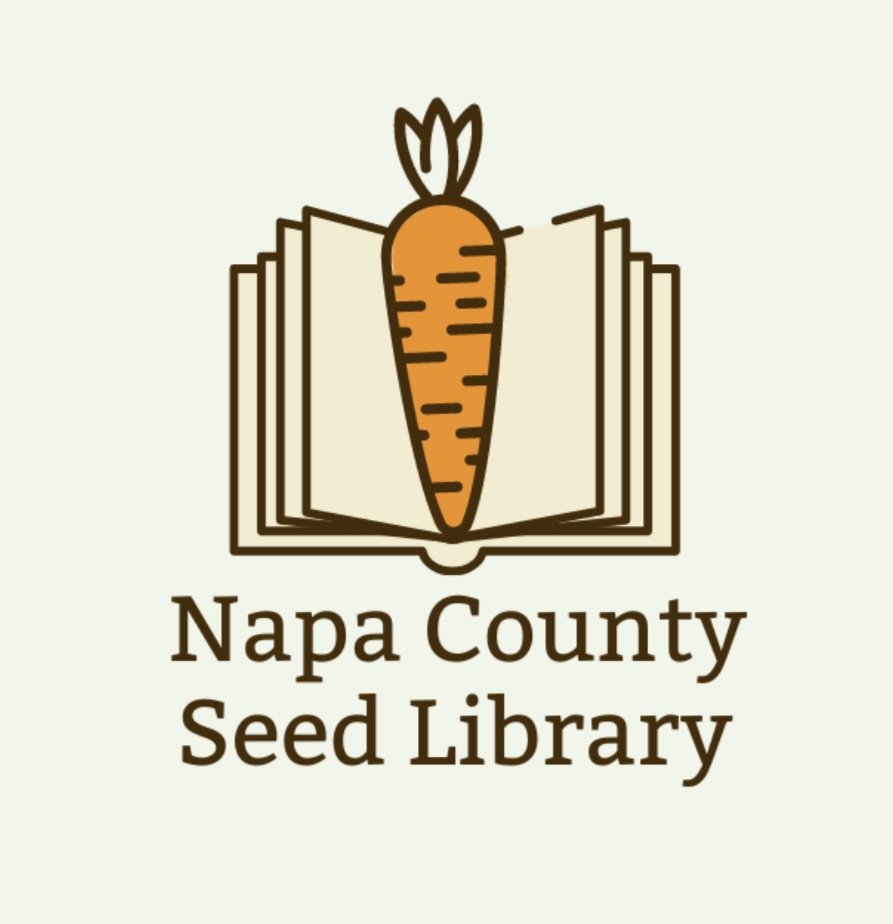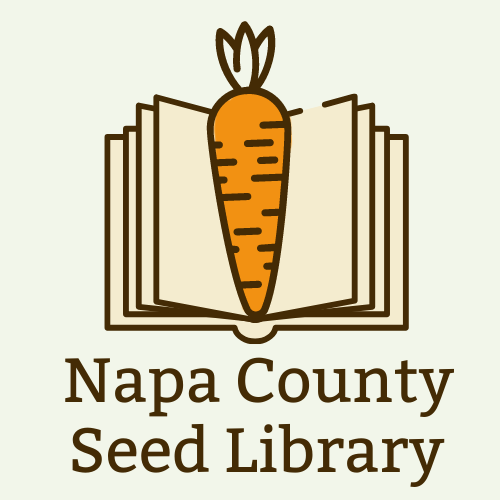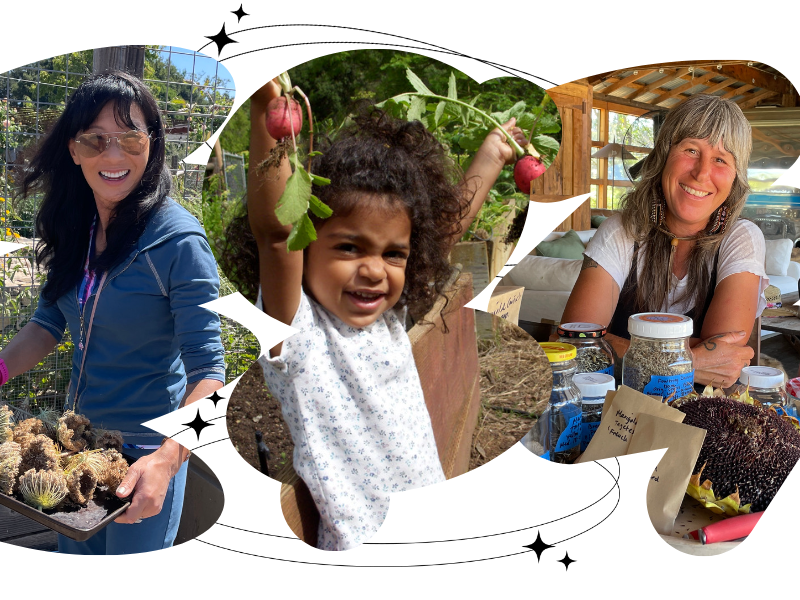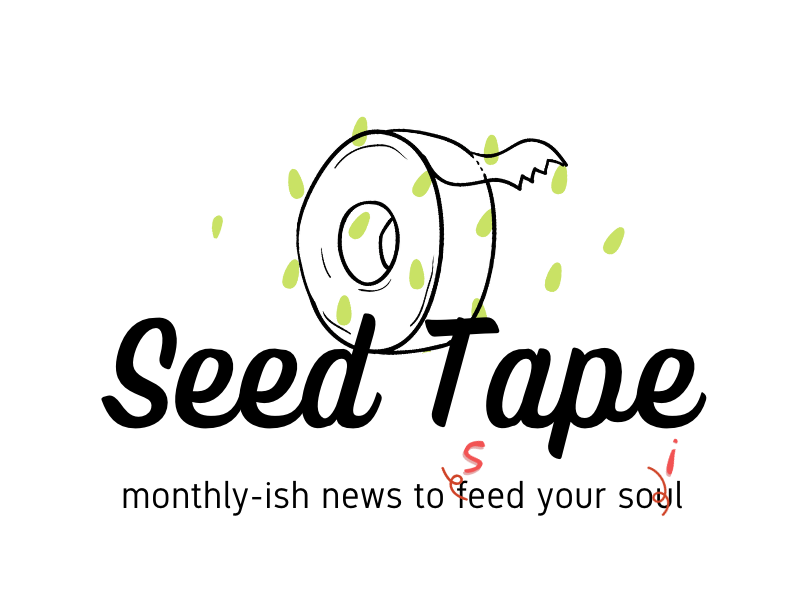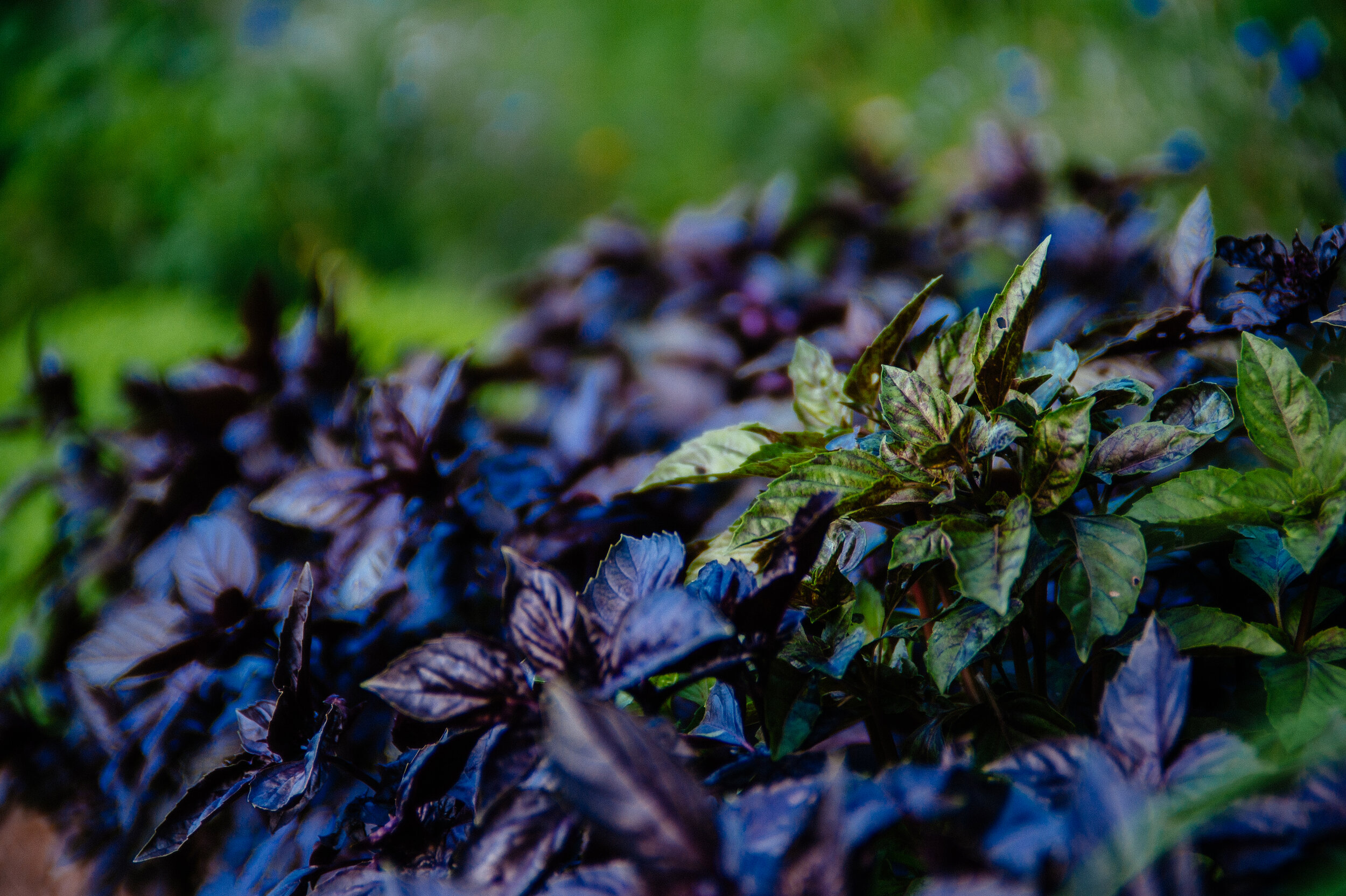
We exchange free organic seeds and teach seed saving skills through volunteer-led seed library annexes in Napa County.
About us
The Napa County Seed Library is a free public resource for seed saving and sharing. We are co-founded by a mother and daughter of Afro-Indigenous, and Russian-Jewish heritage. Through seedkeeping, we invigorate well-being, local food, and regenerative habitat into our community. >>
Seed stories
We promote ethical seed saving to revive and remember important traditions that honor culture, foodways, and place. Recalling your seed journey offers a connection to yourself, others, and that reflection renews your spirit. >>
Community
Our mission is to build community, inspire gardeners and share seed. We are powered by our community of seed savers and dedicated volunteers who practice and teach ethical seed saving skills to new and experienced gardeners and farmers. >>
Locations
Our seed library operates as a network of indoor and outdoor annexes located throughout Napa County. At these annexes you can borrow, grow, save, and return locally grown and organic seeds. >>
Events
We host and participate in local events to develop interest in growing from seeds, regenerating agriculture, and preserving the natural environment. We enjoy mission-aligned collaborations with local nonprofits, city and county agencies, resource organizations, clubs, and businesses to bring the best to our community. >>
Donate
Support our work by donating your time, cash, and organically grown, home-saved seeds. Your generosity inspires and teaches others how to preserve and strengthen our local food system. The Napa County Seed Library is a 501(c)(3) private foundation: FEIN 85-0755714. Your contributions are tax deductible. >>
